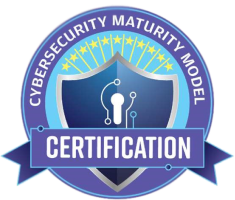Ever wondered about the humans behind our leading artificial intelligence startup? We’re continuing our series “A minute with…” to give you an in-depth, personal Q&A with some of the foremost minds in the world, telling us all about themselves and what they do! Today, meet David Leonard, our Frontend Engineer.
What’s your story?

I’m originally from Queens, New York where I grew up playing video games like Super Mario on Nintendo (I learned how to count because of that game!). I never really knew exactly what I wanted to do with my life, but my interest in computers led me to apply to different schools revolving technology. I ended up studying Computer Engineering in undergrad and Computer Science in post-grad at City College of New York’s Grove School of Engineering. During the first year of getting my Master’s Degree, I did an internship at Yahoo and joined full-time after graduating in both California and NYC. And now, I’m at Clarifai, living in NYC with my cat I/O.
California or NYC?

California (particularly the Bay Area, Sunnyvale & Mountain View) is nicer. I like driving in general, but driving there was much more enjoyable as opposed to driving in Queens. Plus the scenery is unbeatable.
What’s your title and what do you do (or going to do) at Clarifai?

My title is Frontend Engineer. I’ll be working on a multitude of projects, the first one being Explorer, Clarifai’s user interface and visual tool that allows users to upload or drag-and-drop images, tag them with concepts, create and train models, and predict with these models using Clarifai’s API.
What inspired you to get you where you are today?
Even though I knew I was interested in engineering, I had no idea what exactly I wanted to do out of high school. I kind of learned things on my own. I liked computers, but I didn’t know what programming really was and didn’t see the connection between it and anything in the real world at first until I got to college.
During my senior year of undergrad, I realized I had very little passion for Electrical Engineering and more of a passion for programming. So, I decided to spend two extra years taking purely Computer Science courses, and things got better for me. Taking those courses really opened doors for me in game development and that’s when I began to build both small and large scale games, mostly 2D recreations of popular games, with JavaScript, and turn-based strategy games, like Fire Emblem. To strengthen my knowledge, I coded every day for over 800 straight days starting in 2014 and now, here I am!
Explain neural networks to me like I’m 5.
Neural networks copy the way our brains work. They look at an object and learn to tell the different features of that object apart over time – things like the color and what the object is. When the network makes a mistake it learns by looking at examples of the same object that are labeled, much like a parent teaches a child how to distinguish objects/creatures by pointing to pictures in a book and saying the name. In time, neural networks can categorize or group objects just like we do.
What advice would you give those that are looking to join the AI tech startup life or wanting to follow in your footsteps?
A good way to start is by taking a few courses in college to test the waters. Typically, the Machine Learning and AI courses are only taught in master’s programs, so I would encourage undergraduate students to proactively ask for permission to take these courses. Apart from this, having a strong software engineering foundation is probably the most important aspect. Don’t forget your ABC’s (Always Be Coding).
What or who has inspired you the most in your career and how?
Game development is what inspired me the most to get into this field. Programming was always presented in boring ways in school, and I was never able to form a good connection with it. Game development is where I found my passion. I started reading programming books regarding games, and then eventually branched out into other aspects of programming. Now that I know what can be done, my passion for coding is endless.
The most surprising thing about Clarifai?
The engineering culture is incredibly strong, especially compared to a lot of other companies. For example, I’ve been a part of companies where strategy shifts affected the core values of the company and determined the products the team needed to build.

I appreciate that Clarifai hasn’t lost sight of our technology and continuously improving that technology to make the world a better place. Moreover, everyone here is super nice – they’re always willing to help answer questions. Overall, the environment feels great and welcoming.
What’s your favorite Clarifai Core Value and why?
My favorite core value is “Community” because it encompasses what our CEO Matt once said, “we don’t hire jerks and don’t tolerate it”. You wouldn’t believe some of the guys I’ve worked with…¯\(ツ)/¯. I’ve worked with my fair share of developers and with regards to startup cultures, you also hear a lot about bro-culture. I really like the diverse culture we have here, and that the CEO wants this.It’s great to see that community is at the core of Clarifai. I would tell everyone to work here.
Do you ever get imposter syndrome and if so, how do you overcome it?
All the time. After finishing up school and getting my internship at Yahoo, moving out to the West Coast and leaving my comfort zone was very intimidating. I always heard about Silicon Valley and thought everyone would be a certain way, but my team was great! Working at Yahoo was like my big break. I learned how to apply the skills I learned, took things one step at a time, and looked back at my accomplishments, which gave me a boost in confidence.
But I still get it from time to time. Even during my first two weeks at Clarifai, I was constantly told there was no pressure to contribute code and that most new hires spent time ramping up. Despite these affirmations, I still pressured myself to try and get some features merged during my first week. Sure enough, I did get two pull requests merged (yay!), but even now I still feel that there is more to do before I start to feel comfortable – probably due to the high bar I set for myself all the time. By overcoming the high standards I’ve set, it helps me to simultaneously overcome my fears (weird, right?). I seem to do well when it comes to battling through adversity. Tl;dr, work hard, stay focused and fight off the feelings that say “you can’t do it” – it gets better with time.
What are your tips for keeping up with ML and staying on the cutting edge?
Hacker News is a great resource, along with engineering blogs such as Google’s. Coursera also has a good set of resources, but above all, it is important to always try new things.
It’s a really exciting time to be a software engineer, especially in AI. What do you think are the biggest trends of our time in this space?

AI + ML is certainly the “hot” space, and we’ve seen it pick up particularly around the development of self-driving cars and AIs that can beat world-leading players in complex games (chess, Go). I think we still have a long way to go before we truly have “Strong AI”, but it’s very exciting at the moment.
If you’re not at Clarifai, what are you most likely doing?
Playing video games at home or with friends and/or going to the gym (I’m a bit of a gym rat…). Right now I’ve been playing Fire Emblem Warriors for the Nintendo Switch, as well as Super Mario Odyssey (also for the Nintendo Switch).
2 Truths and a Lie.
My online nickname “DrkSephy” stems from being one of the top-ranked players in an old online game.
I’ve had long hair for the past 18 years.
I’m ambidextrous.
Can you figure out which one is the lie? 🙂
Thanks for sharing David!
Have more questions for David and/or want to connect? Follow him:
Twitter: @DrkSephy
Linkedin: @DrkSephy



